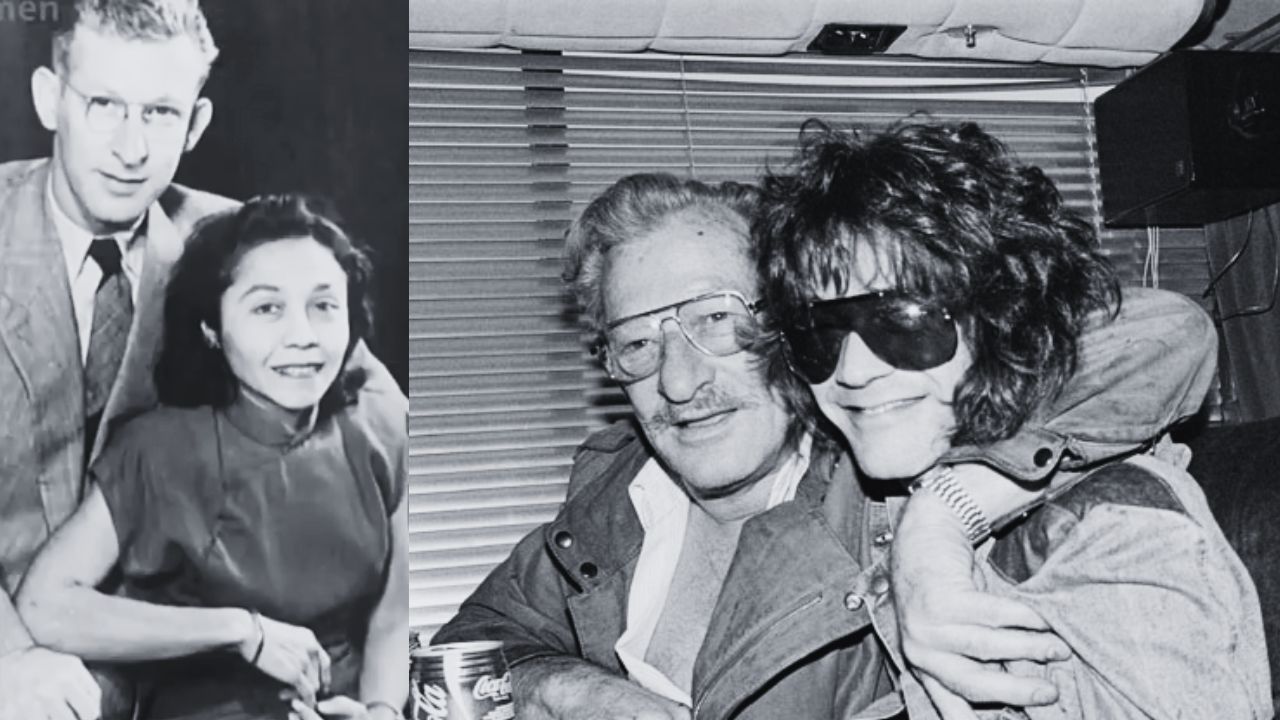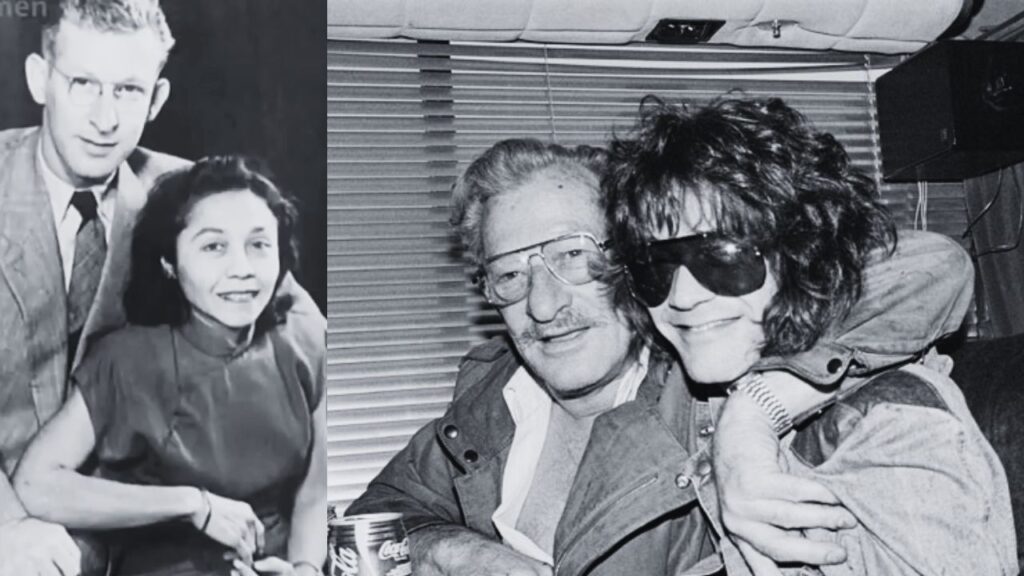Jan Van Halen, a name you might recognize, is the father of renowned musicians Eddie and Alex Van Halen from the famous rock band, Van Halen. Born on January 18, 1920, in Amsterdam, Netherlands, Jan was a talented jazz musician in his own right. He left an indelible mark on the music industry, not only through his own musical exploits but also through the influence he had on his sons.
Early Life and Musical Beginnings
Jan Van Halen was born into a world that was soon to be obsessed with jazz. Growing up in Amsterdam, he developed a love for music early on that transcended into a lifelong passion. He was a multi-instrumentalist, proficient in the clarinet, saxophone, and piano. Jan’s childhood was steeped in music, and his talent made him a popular figure in the local music scene.
Before World War II, Jan played in various jazz bands, swing bands, and orchestras across Europe. His talent and dedication to music led him to perform in various parts of Europe, spreading the sound of jazz wherever he went. He was not just a performer; he was a passionate musician who lived and breathed music.
Jan Van Halen’s Career in Europe
Jan’s music career in Europe was flourishing as he played in various jazz and swing bands. His performances were well received, and he was known for his unique style and impressive skills. He played music that made people feel, music that drew audiences in and held them captivated.

In 1939, with the cloud of war looming over Europe, Jan enlisted in the Dutch Air Force. His musical talent was put to good use as he was assigned to entertain troops and play propaganda music. It was a trying time for Jan, as the joy of making music was contrasted with the harsh realities of war.
Despite the challenges, Jan continued to play music throughout the war, even when the Netherlands was invaded by Germany in 1940. His music became a beacon of hope for many during those dark times, a testament to the power and resilience of art even in the face of adversity.
In the aftermath of the war, Jan’s journey took him to Indonesia, where he continued to play music and where he met his future wife, Eugenia van Beers. They returned to the Netherlands in 1949, marking the end of an important chapter in Jan’s life and the beginning of a new one that would take him and his family to the other side of the world.
Impact of World War II on Jan’s Life
World War II had a significant impact on Jan Van Halen’s life. In 1939, as war clouds were gathering over Europe, Jan made a decision that would shape his life. He enlisted in the Dutch Air Force, a move that would take him away from the jazz clubs and music halls he loved. However, his musical talent was not wasted. Instead of fighting on the front lines, he was assigned to entertain troops and play propaganda music.
The war years were challenging for Jan. The invasion of the Netherlands by Germany in 1940 brought fear and uncertainty. However, Jan did not let these circumstances deter him. He continued to do what he loved most: playing music. His performances brought comfort and a sense of normalcy to many in those troubled times. His music became a symbol of hope, showcasing the enduring power of art in the face of adversity.
Family Life and Move to the United States
Following the end of the war, Jan moved to Indonesia where he met his future wife, Eugenia van Beers. They returned to the Netherlands in 1949, beginning a new chapter that would eventually lead them to the United States. In 1953 and 1955, respectively, their sons Alex and Eddie were born, marking a significant milestone in their lives.
In 1962, Jan made a bold decision. He uprooted his family and moved to California, marking a significant shift in his life. This move was driven by his desire for a fresh start and better opportunities for his family, particularly for his musically inclined sons. Life in California was different, but the family adapted and thrived.
Jan Van Halen’s Influence on Eddie and Alex
Jan’s influence on his sons, Eddie and Alex, was profound. Despite a setback in his own musical career – the loss of one of his fingers in an accident in 1972 – he remained a strong supporter of his sons’ musical endeavors. His love for music was infectious, and he passed this passion on to his sons, encouraging them to pursue their own musical paths.
Jan became a guiding force in their lives, sharing his knowledge and experience. He supported their decision to form a band, and his friendship with David Lee Roth, the lead vocalist of Van Halen, played a significant role in the band’s formation. Jan’s influence on Eddie and Alex was pivotal, shaping their musical styles and contributing to the success of Van Halen.
Contribution to Van Halen’s Music
Beyond his own musical career, Jan Van Halen played a vital role in his sons’ musical journey. Despite losing a finger in an accident in 1972, which ended his own performance career, Jan remained deeply involved in the music scene through his sons, Alex and Eddie. His passion for music was undeterred, and he became a strong supporter of his sons’ musical endeavors.
One of the significant moments in Van Halen’s music career was when Jan played the clarinet on the song “Big Bad Bill (Is Sweet William, Now)” for Van Halen’s 1982 album, Diver Down. This marked one of the few times he played music after his accident. His contribution to the song was not just about his performance; it was about the heart and soul he put into the music.
Eddie Van Halen, recalling the session, noted that the mistakes Jan made during the recording added to the charm of the song. This anecdote serves as a beautiful reminder of Jan’s passion for music and his influence on the band. His unique style and dedication to music made a lasting impression on Van Halen’s music and contributed significantly to the band’s success.
Legacy and Reflections on Jan Van Halen
Jan Van Halen left a rich legacy in the music world. His journey from his early days in Amsterdam to his contributions to his sons’ band, Van Halen, is a testament to his love for music. His experiences during World War II, his decision to move across the globe, and his influence on his sons’ musical careers speak volumes about his character and resilience.
Jan’s life was defined by music. His passion for jazz and his dedication to the arts are remembered and celebrated. Despite the challenges he faced, including the war and his accident, his love for music never wavered. He continued to influence and inspire, leaving a mark on the music industry that will not be forgotten.
Conclusion
As we remember Jan Van Halen, we look back at a life filled with music and resilience. Born in Amsterdam and brought up amidst the jazz culture, Jan’s journey took him across continents, through war, and onto the stages of his sons’ rock concerts. His passion for music was unwavering, and his influence on Van Halen was profound.
Despite his own musical career being cut short, Jan remained an integral part of the music world through his sons. His legacy lives on through the music of Van Halen, reminding us of a man who lived and breathed music. As we remember Jan Van Halen, we celebrate a life well-lived, a passion well pursued, and a legacy well left behind.
You May Also Like:


